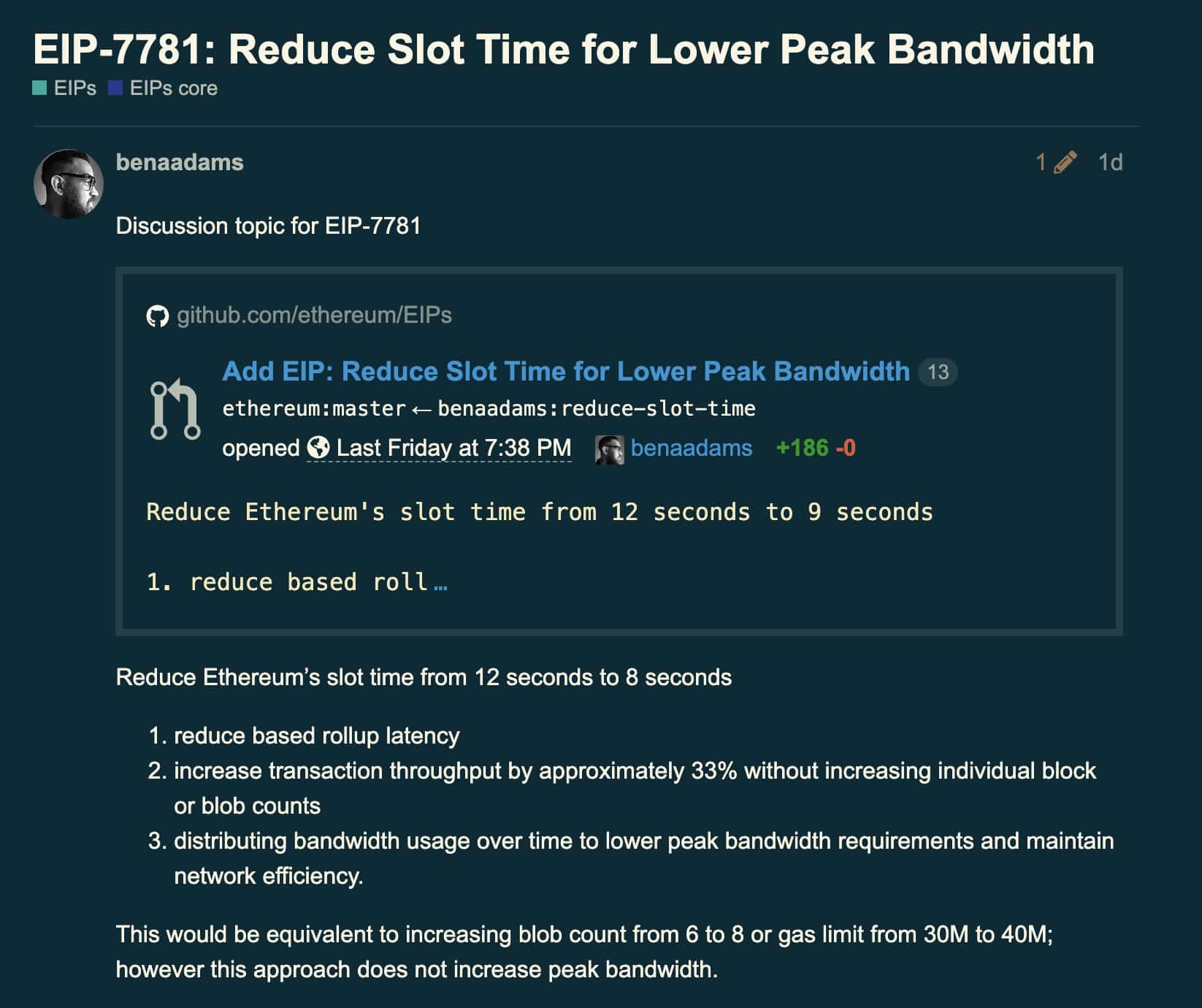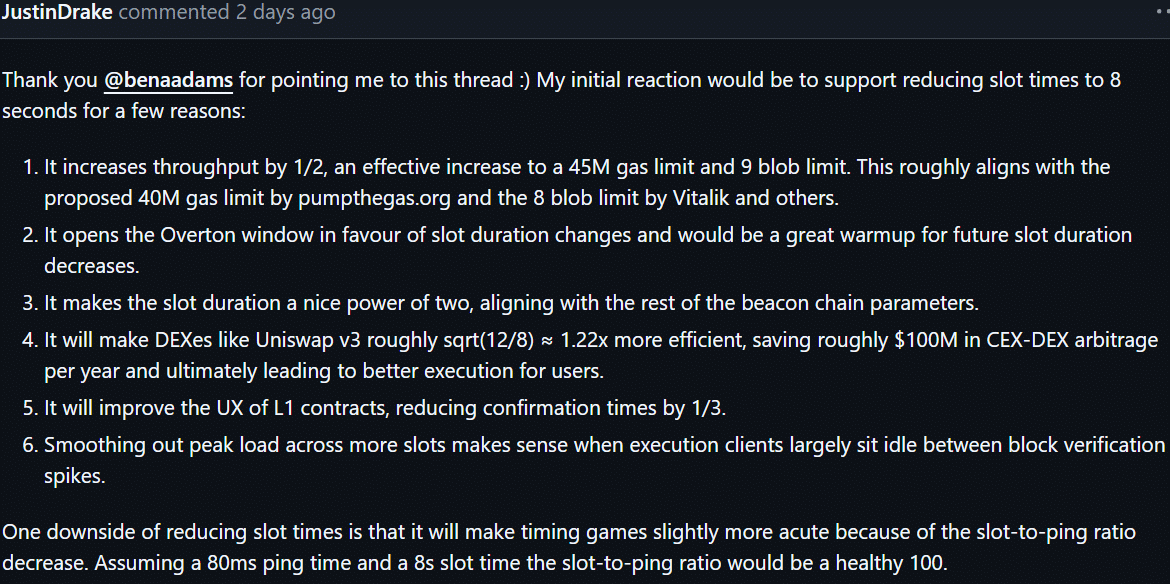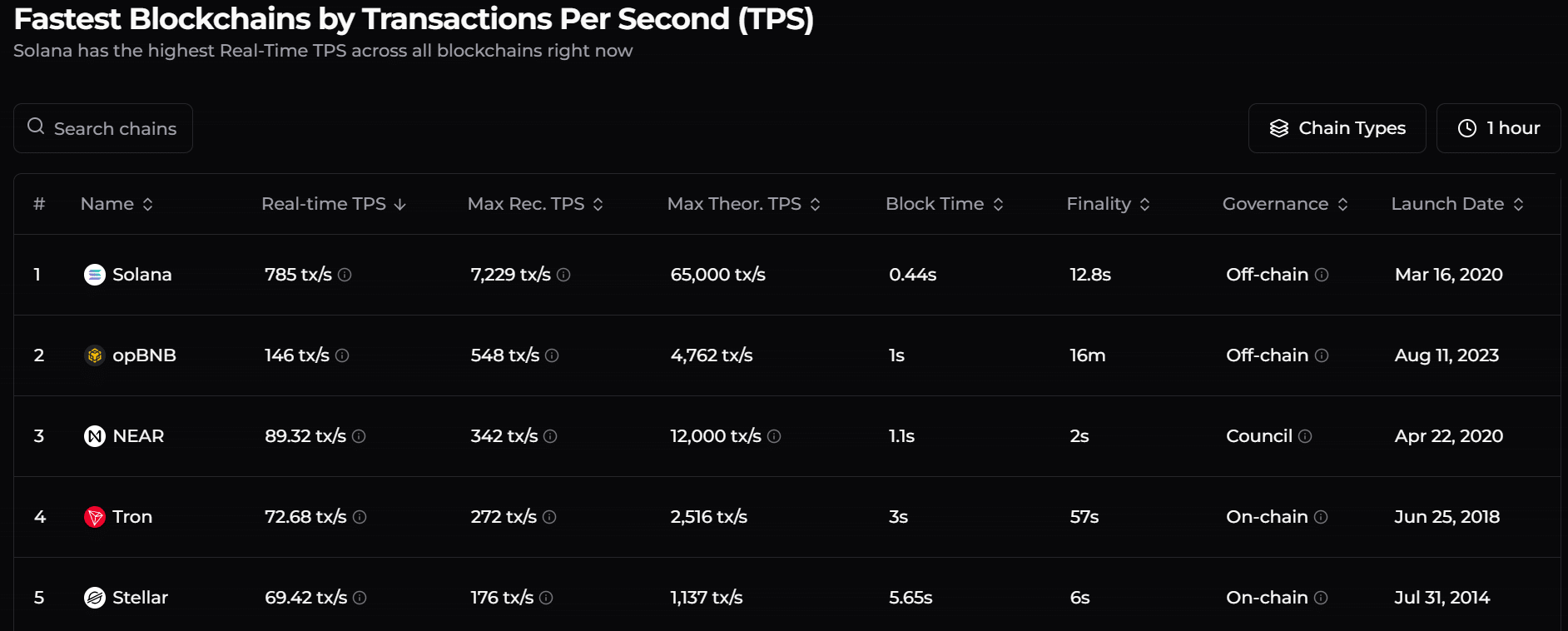- Ethereum’s new proposal aims to enhance performance by 50%.
- If approved, it could help ETH close the gap with other top L1s’ throughput.
Ethereum [ETH] researchers have made a crucial proposal to improve the platform’s performance. The proposal, known as EIP 7781, aims to enhance throughput performance by 50%.
Key proposed changes for Ethereum
Ben Adams, a contributor at Netherminds, an Ethereum execution client, forwarded the proposal. He suggested reducing slot times from 12 seconds to 8 seconds.
For context, Ethereum PoS (Proof-of-Stake) is designed to propose a block every 12 seconds, called slots. For each slot, a validator is selected to propose the block, making this feature a crucial part of its transaction throughput capacity.

Source: GitHub
Therefore, reducing the slot times could greatly enhance throughput capacity.
Others concur
Another Ethereum researcher, Justin Drake, supported the proposal as well. He cited its potential to improve the efficiency of DEXes (decentralized exchanges).
According to Drake, the proposal could save DEXes around $100 million annually in arbitrage executions.


Source: GitHub
Most importantly, if the proposal is approved, Ethereum’s throughput could improve by 50%, with the gas and blob limit capped at 45 million and 9, respectively.
Most community members hailed the proposal as a game-changer for ETH’s performance. According to Mathew Sigel, head of digital assets research at VanEck, the proposal could ‘shift some power back to L1.’
“Major #ETH improvement proposal may shift some power back to L1. Hints at further acceleration. Both L1 & L2s (via blobs) get a 50% bump in throughput.”
At press time, many of the proposal’s potential negative impacts were unknown. But Sigel believed the move could help reverse ETH’s declining value.
For perspective, ETH has been the subject of intense FUD recently. Following the Blobs update in March 2024, investors blamed its declining value on its inflationary nature.
Whether the proposal will be approved and ETH’s dynamics will change remains to be seen.


Source: ChainSpect
However, Solana [SOL] was the fastest blockchain at press time. It had the highest speed, with 785 transactions per second (tps). If the Firedancer client goes live on the Mainnet, it could hit thousands or millions of tps.
On the other hand, ETH ranked 15th on the fastest blockchain list. It doesn’t match SOL, even with its L2 scaling solutions. That said, the proposal could help ETH close the gap.

